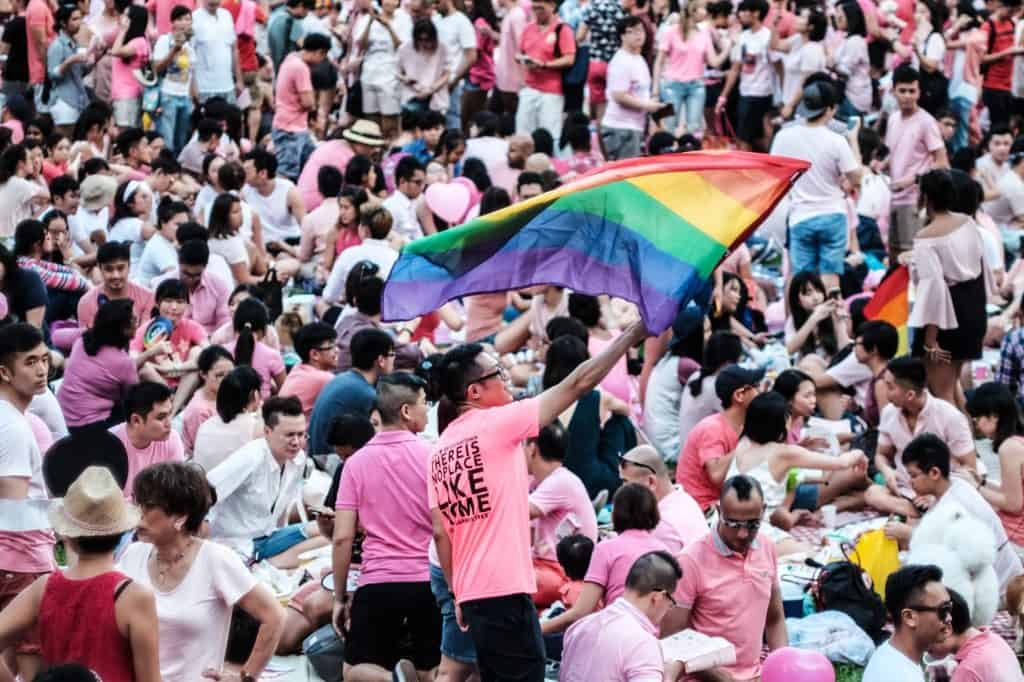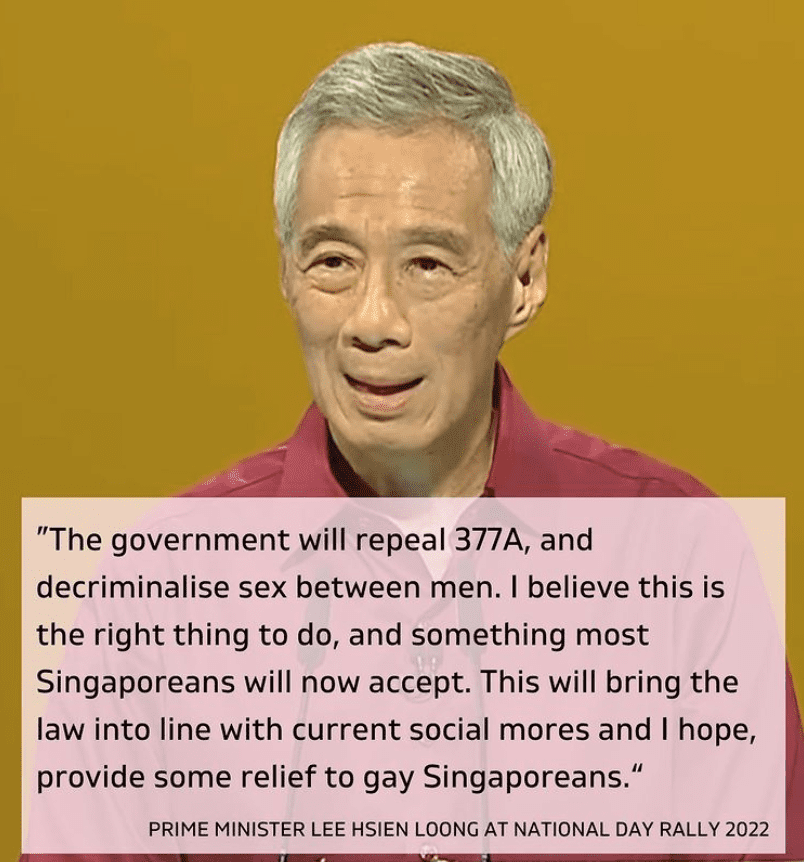The long-lasting impacts of British Colonialism can be seen in almost every aspect of life around the globe. From what we eat, to what we wear, to how we love, British imperial rule completely changed the world.
One such example is the impact of Colonialism on how various cultures view gay people. For thousands of years in Asian cultures, same-sex love was by and large welcomed, and often even celebrated, with both Hindu and Buddhist laws allowing for same-sex relationships. In 1852, the Brits changed that and instituted the Indian Penal Code; in 1923 they adopted Section 377A of the Indian Penal Code which made illegal any sex between consenting adult males.
Singapore's Prime Minister, Lee Hsien Loong, announced the shift on August 21st, saying, "This is the right thing to do, and something that most Singaporeans will accept.” Loong says the repeal of Section 377A of the Indian Penal Code will hopefully bring Singapore closer to the "current social mores" of the 21st century, and he hopes it will "provide some relief to gay Singaporeans." In an interview with the BBC, Singaporean gay activist Johnson Ong said, "We finally did it, and we’re ecstatic that this discriminatory, antiquated law is finally going to be off the books. There’s a sense that maybe it took a little too long, but it had to happen, you know. Today we are very, very happy."
The move has long been pushed for by activists and influencers alike. Gay influencers - and a couple in real life - Hugo Liu and Andee Chua were using their platforms to push for the change. Social media immediately reacted when the law was repealed, with activist accounts celebrating the huge victory.
Yes We Exist India took to their page to celebrate the huge victory and the work that organizations like Pink Dot have done for the LGBTQ+ people of Singapore, saying, "Congratulations to all LGBTQIA+ Singaporeans on the latest announcement. Hope PM @leehsienloong lives up to his words and repeals 377A asap. Thanks to @pinkdotsg and all other Organisations, Activists, Collectives, and individuals who have continued the fight against 377A for years despite Singapore's strict anti-protest laws and conservative governments. Congratulations! A long journey for acceptance and complete equal rights lies ahead!"
View this post on Instagram
But the news isn't all good. Prime Minister Loong said the city-state would make sure the legal marriage protections remained strictly for cisgender men, and cisgender women. What this means is that it will make it incredibly difficult for gay marriage to become legal in Singapore.
Dr. Roy Tan, another Queer Singaporean activist working with Pink Dot understands this, but also knows that the change in law will have incredibly widespread impacts on all of Singaporean society. “The retention of Section 377A causes a trickle-down effect which influences many of the rules and guidelines governing the lives of LGBT individuals in Singapore,” Tan said.
Where will the country go from here? Dr. Tan is optimistic about what the future holds for gay Singaporeans. “I look forward to a future where we can hold our heads up high as equals in the eyes of the law instead of living as marginalized, second-class citizens in our own country.”
Cybersocket: Plug In. Get Off. Questions? Comments? Email us at [email protected]. Follow us on Twitter and Instagram.


























